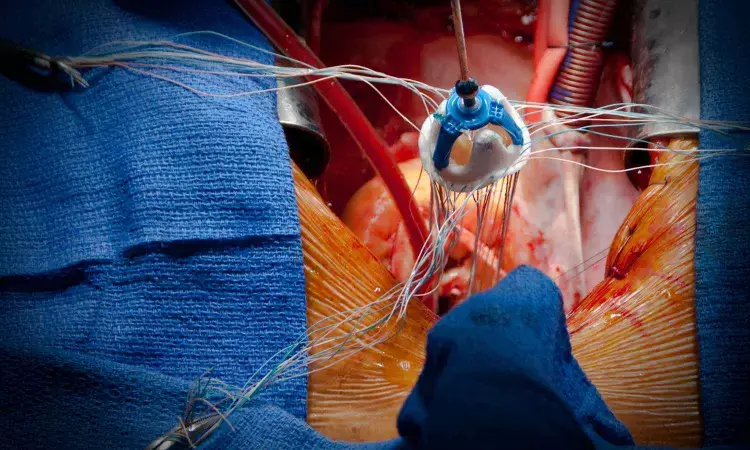- Home
- Medical news & Guidelines
- Anesthesiology
- Cardiology and CTVS
- Critical Care
- Dentistry
- Dermatology
- Diabetes and Endocrinology
- ENT
- Gastroenterology
- Medicine
- Nephrology
- Neurology
- Obstretics-Gynaecology
- Oncology
- Ophthalmology
- Orthopaedics
- Pediatrics-Neonatology
- Psychiatry
- Pulmonology
- Radiology
- Surgery
- Urology
- Laboratory Medicine
- Diet
- Nursing
- Paramedical
- Physiotherapy
- Health news
- Fact Check
- Bone Health Fact Check
- Brain Health Fact Check
- Cancer Related Fact Check
- Child Care Fact Check
- Dental and oral health fact check
- Diabetes and metabolic health fact check
- Diet and Nutrition Fact Check
- Eye and ENT Care Fact Check
- Fitness fact check
- Gut health fact check
- Heart health fact check
- Kidney health fact check
- Medical education fact check
- Men's health fact check
- Respiratory fact check
- Skin and hair care fact check
- Vaccine and Immunization fact check
- Women's health fact check
- AYUSH
- State News
- Andaman and Nicobar Islands
- Andhra Pradesh
- Arunachal Pradesh
- Assam
- Bihar
- Chandigarh
- Chattisgarh
- Dadra and Nagar Haveli
- Daman and Diu
- Delhi
- Goa
- Gujarat
- Haryana
- Himachal Pradesh
- Jammu & Kashmir
- Jharkhand
- Karnataka
- Kerala
- Ladakh
- Lakshadweep
- Madhya Pradesh
- Maharashtra
- Manipur
- Meghalaya
- Mizoram
- Nagaland
- Odisha
- Puducherry
- Punjab
- Rajasthan
- Sikkim
- Tamil Nadu
- Telangana
- Tripura
- Uttar Pradesh
- Uttrakhand
- West Bengal
- Medical Education
- Industry
New Study identifies early signs of valve failure one year after TAVI, raising durability concerns in younger patients

A new study published in The Annals of Thoracic Surgery, a journal from The Society of Thoracic Surgeons, has identified early hemodynamic valve deterioration (HVD) in more than 6% of patients just one year after undergoing transcatheter aortic valve implantation (TAVI), raising new questions about valve durability in younger, lower-risk populations.
The retrospective study, which analyzed 10 years of procedures from 2012 to 2022, evaluated 2,123 patients who had complete echocardiographic follow-up data. Researchers found that patients with 1-year HVD were more likely to be younger and have smaller aortic annuli than those without HVD. Importantly, smaller implanted valve sizes were significantly associated with the development of HVD, while larger valves appeared to be protective.
“As TAVI is increasingly used in younger and healthier patients, our findings suggest a need to carefully consider valve sizing and long-term durability,” said lead study author Eishan Ashwat, BS, a medical student at the University of Pittsburgh School of Medicine. “Early identification of hemodynamic deterioration may serve as a key predictor of future reintervention and patient outcomes.”
According to the study, patients with 1-year HVD had a five-year aortic valve reintervention rate nearly four times higher than those without HVD (2.3% vs. 0.6%). Prior surgical aortic valve replacement (AVR) was also independently associated with a higher risk of early HVD.
The findings underscore the importance of vigilant long-term follow-up and may influence future decision-making regarding valve selection, particularly in patients with smaller aortic anatomy or a history of AVR.
The study used the updated Valve Academic Research Consortium-3 (VARC-3) definitions to assess bioprosthetic valve function and structural deterioration.
Reference:
Ashwat, Eishan et al., Early Hemodynamic Valve Deterioration After Transcatheter Aortic Valve Implantation, The Annals of Thoracic Surgery, DOI:10.1016/j.athoracsur.2025.06.050.
Dr Kamal Kant Kohli-MBBS, DTCD- a chest specialist with more than 30 years of practice and a flair for writing clinical articles, Dr Kamal Kant Kohli joined Medical Dialogues as a Chief Editor of Medical News. Besides writing articles, as an editor, he proofreads and verifies all the medical content published on Medical Dialogues including those coming from journals, studies,medical conferences,guidelines etc. Email: drkohli@medicaldialogues.in. Contact no. 011-43720751


